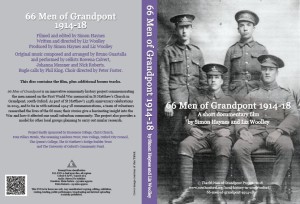Centre for African Studies, University of Cape Town, 28-30th March 2017
This conference commemorates the sinking of the SS Mendi that occurred during the First World War, on 21 February 1917. It pays tribute to the South African Native Labour Contingent, and the men on the Mendi who died en route to fight for their dignity and human rights through service to the war effort.
The conference seeks to explore the struggle against oppression and dispossession, and particularly against the Natives Land Act of 1913, as a reason why these men left their homes in rural South Africa to contribute to the war effort. It also aims to examine the roles played by black intellectuals such as Samuel Edward Krune Mqhayi, Solomon T. Plaatje, and John Dube in the recruitment of men to the South African Native Labour Contingent, and in dealing with the aftermath of the Mendi tragedy.
One of the themes we are very keen to traverse is black southern African perspectives on the sea. While a great deal has been theorized about ocean voyages and the littoral zone in the fields of Indian Ocean Studies and Black Atlantic Studies, there is very little existing research on black southern African perspectives on the sea.
From a literary and cultural studies perspective we would also like to consider the extent to which poetry related to the Mendi could fit within or perhaps disrupt a canon of World War 1 poetry, which has thus far focused mainly on English/ European writings.
We welcome contributions from established academics and researchers, but we are also extremely interested in how a new generation of South African writers, scholars, performance poets, artists, activists and intellectuals are reimagining and making sense of the Mendi story. To this latter end we will have panels for performance poetry, and wish to encourage participation and interaction from students. Artists and poets are invited to address the gathering through poetry, artistic work or discussion of artistic work, on any of the topics related to the conference theme.
What role does the rich history of our country play in understanding where we are today, and where does the story of the Mendi fit within that history?
We welcome abstracts (300 words max) for 20 minute papers/ presentations/ performances on any of the following topics related to the conference theme:
the story of the Mendi and its relevance to the present;
the history of the South African Native Labour Contingent;
the Mendi story and its relation to black military history in the 20th century;
“putting on the uniform”: black military history and first and second world wars;
black perspectives on the sea, the oceanic, and the littoral zone in southern Africa – we wish to explore this neglected topic through examining literature, orature, the visual arts, performance art, and history;
the Mendi and black intellectual and poetic traditions;
the place of poetry related to the Mendi in the canon of WW1 poetry;
Lost in translation: translating and retranslating poetry such as Mqhayi’s from indigenous languages into English;
“did they dance?”: historical “truth”, historiography, and the work of imagination;
the Mendi and the politics of commemoration in South Africa;
creative responses: the role of the arts in commemorating the Mendi;
the Mendi and issues of compensation.
Please submit your abstracts or proposals by 30 September 2016 to: mendi2017@gmail.com
Conference website here.

